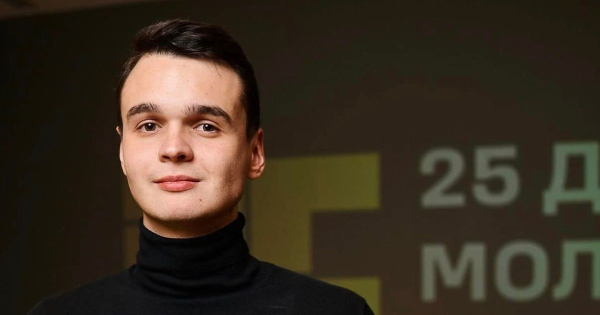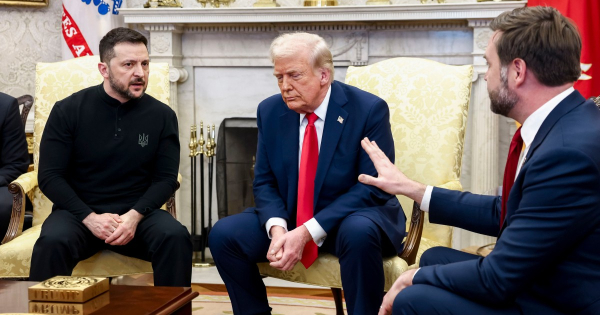
Dear readers,
Welcome to EU Politics Decoded where Benjamin Fox and Eleonora Vasques bring you a round-up of the latest political news in Europe and beyond every Thursday.
In this edition, we look at how the European Commission’s ambitious plans for a ‘strategic partnership’ with Africa have been stalled by the fallout from the COVID-19 pandemic and now Russia’s war in Ukraine.
Editor’s Take: Doubt of Africa
Relations between the EU and Africa are increasingly cool just nine months after a leaders’ summit in February that was supposed to entrench a ‘strategic partnership’. It’s a setback for Ursula von der Leyen’s self-styled ‘geopolitical Commission’.
That froideur was scarcely disguised at the meeting between the European Commission and its Addis Ababa-based counterpart, the African Union Commission, earlier this week.
Relations have been strained first by the COVID-19 pandemic – specifically the charge that the EU, together with the United States, hoarded vaccines – and now by the effects of Russia’s invasion of Ukraine.
A group of European countries have scrambled to agree on gas deals with the likes of Algeria, Mozambique and others, while increased wheat and grain prices and agricultural inputs such as fertiliser are hitting African states particularly hard. They see themselves as collateral damage from a uniquely ‘European’ war.
That has not been helped by last month’s COP27 climate summit in Egypt where Europe and Africa were pitted against each other on fossil fuel phase-out. German foreign minister Annalena Baerbock blamed ‘stonewalling and organisational shortcomings’ by African states and the Egyptian presidency for the collapse of the EU-driven proposal to agree a deadline for ending fossil fuel use.
Asked by reporters about the prospects of a deadline, Ghana’s special envoy to the Climate Vulnerable Forum, Henry Kokufu, retorted ‘for developed or developing countries?’
From African states, there is bemusement that wealthy nations, led by Europe and the US, should tell them not to extract oil and gas when their relative carbon emissions are so low – and their gas so in demand, by European states themselves.
Commission President Ursula von der Leyen promised that there could be “a defining moment where we can join forces” on energy policy via EU financing for ‘clean energy’.
In response, her counterpart, African Union Commission Chair Moussa Faki Mahamat said in Brussels that the “injustice” of past broken climate finance commitments “must be righted”. While welcoming the EU’s agreement to a ‘loss and damage’ fund at COP27, his attitude was that he will believe it when he sees it.
The hard truth is that the EU offers warm words but has repeatedly fallen short on the cold hard cash it has promised for climate change adaptation and infrastructure investment.
Following the Monday meeting, the EU executive announced that it would provide €750 million to support African infrastructure investments in transport, digitalisation and energy connectivity as part of the bloc’s Global Gateway programme. The EU sees the programme as its answer to China’s Belt and Road Initiative but the sums of money involved are far smaller. €750 million is a fraction of the over €4 billion per year in foreign direct investment from China in Africa.
It is not as though the Commission is unaware that it is losing diplomatic ground.
In an interview with EURACTIV, EU foreign affairs chief Josep Borrell conceded that the EU had “been losing Africa little by little”, in terms of the bloc’s political and economic influence.
The trouble is that there appears to be not much they can do about it.
Capitals-in-brief
German FM warns Turkey against Syria ground offensive. Foreign Minister Annalena Baerbock called on Turkish counterpart Mevlüt Cavusoglu not to take any measures towards further escalation after Turkish President Recep Tayyip Erdoğan threatened to launch a ground offensive in Northern Syria.
Austria loses EU court case against Hungarian nuclear power plant. The European General Court has dismissed a 2018 case brought by the Austrian government against the European Commission over a new Hungarian nuclear power plant, Paks II, financed by Budapest and Russia.
Minister insists migrants did not die on Spanish soil. No lives were lost on Spanish soil, said Spanish Interior Minister Fernando Grande-Marlaska, who rejected accusations against the country’s security forces who insist they failed to prevent dozens of migrant deaths including one on Spanish soil during the Melilla tragedy.
Inside the institutions
Sanctions for blighty. EU lawmakers on Wednesday (30 November) finalised a law that will allow the bloc to take retaliatory measures, including sanctions against the UK if it refuses to implement the terms of the Brexit agreement.
No funds for Hungary. While recommending the freezing of EU funds under the rule of law conditionality mechanism, the European Commission gave a formal green light to Hungary’s recovery plan. However, it said that the disbursement of the recovery money would be linked to 27 ‘supermilestones’, a move which has prompted an angry reaction from the Orban government.
EU inquiry into controversial French media merger moves ahead. The European Commission will conduct an in-depth antitrust investigation into the proposed acquisition of the French media group Lagardère by another national colossus, Vivendi.
Commission wants farmers, landowners to lead carbon removal push. With a newly proposed regulation, the European Commission aims to set EU-wide standards for certifying the removal of carbon from the atmosphere, including so-called carbon farming measures. But critics warn the text leaves important gaps.
What we are reading
- ‘Destitution is almost inevitable’: Afghan refugees in Greece left homeless by failed system, writes Katy Fallon for The Guardian
- Qatar’s glittery World Cup disguises a dark reality, writes Natasha Iskader for the Washington Post
- Chinese students and young workers look to Hong Kong for a better future, writes Chan Ho-him, Gloria Li and Cheng Leng for the Financial Times
The next week in politics
- A busy beginning of December for the Council. Eurogroup and transport council on Monday; EU-Western Balkans summit in Tirana and economic and financial affairs council on Tuesday; employment and social policy council on Thursday, as well as justice and home affairs council on Thursday and Friday, and eventually Health Council on Friday.
- Committee and political group meetings at the European Parliament
Thanks for reading. If you’d like to contact us for leaks, tips or comments, drop us a line at [email protected] / [email protected] or contact us on Twitter: @EleonorasVasques & @benfox83
[Edited by Nathalie Weatherald]
Source: euractiv.com



